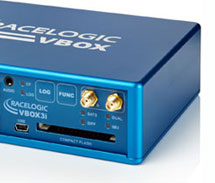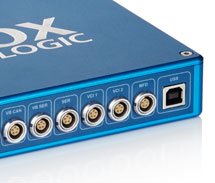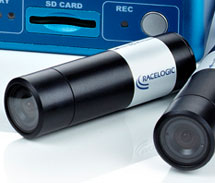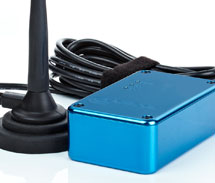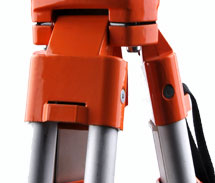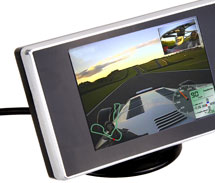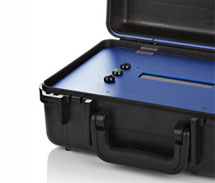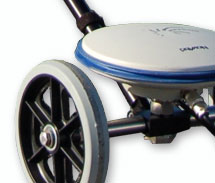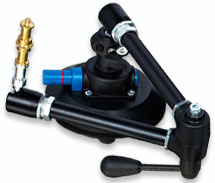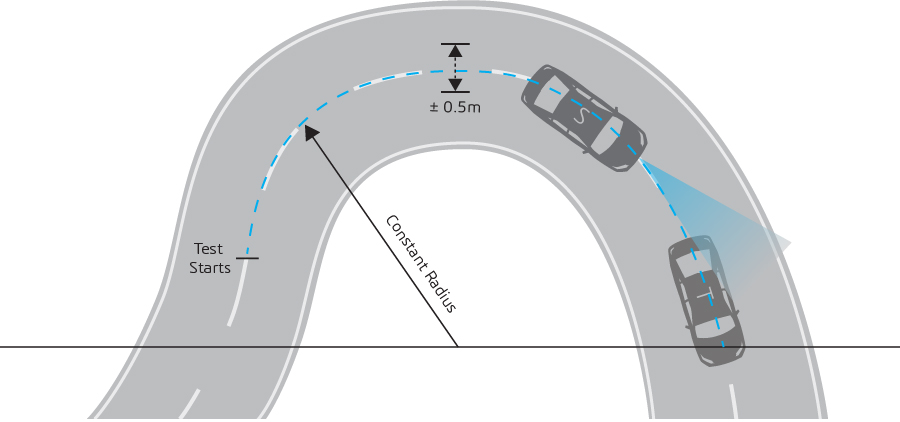- Speed of target and subject vehicle
(0.1km/h RMS)
- Separation time (0.05s)
- Longitudinal separation (0.02m RMS)
- Lateral separation (0.02m RMS)
|
- Yaw rate for target and subject vehicle
- Angle to target vehicle (0.1º RMS)
- ACC warning signal output
|
For a list of all standard GPS data channels and accuracies that are also measured please refer to the VBOX 3i RTK product page.
MULTIPLE TARGET CAPABILITY
The ‘Multiple targets’ feature of the ACC test equipment is capable of calculating parameters from three target vehicles and the lane at the same time.
OPEN ROAD TESTING
By substituting the DGPS Base Station with a specially configured VBOX 3i RTK, our MOVING BASE test setup allows users to test and verify active safety systems outside the test track.
 Conduct realistic testing amongst other road users and roadside architecture
Conduct realistic testing amongst other road users and roadside architecture- Test over a large area
- Measure with relative positional accuracy between subject and target vehicle under 5 cm
- Maintain RTK lock between VBOX units with up to 600m of vehicle separation in good conditions
VIDEO INTEGRATION
When used in conjunction with a VBOX video system, the measured parameters can be graphically overlaid in real-time onto the recorded video, providing a clear visual reference to the performance of the test.
Graphical overlay is totally user configurable and can be easily altered to present relevant information according to the tests being conducted.
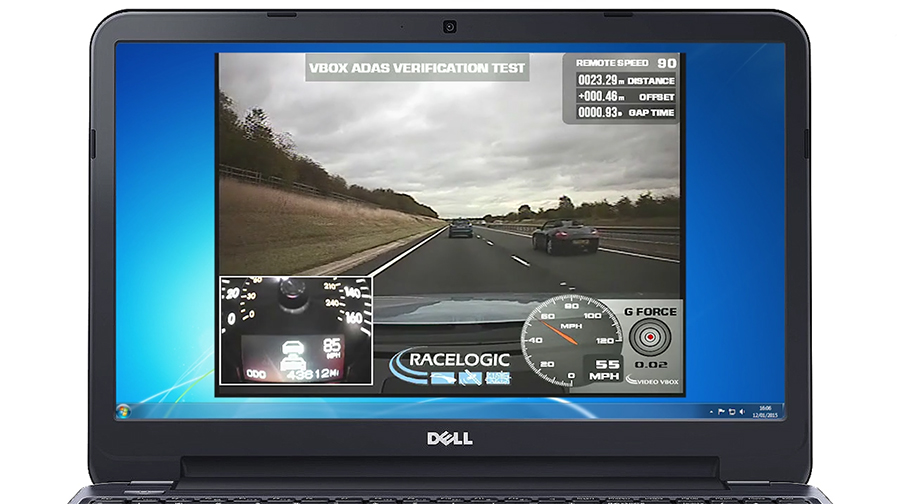
FREE ANALYSIS SOFTWARE
VBOX Test Suite has been developed to make the process of analysing your test results as quick and clear as possible by combining a clean layout with the ability to compare sets of data simultaneously using multiple test conditions.
It does this by using separate tabs for each test, enabling you to compare different vehicles or set-ups without having to reset your test parameters each time, or search through multitudes of data on a single screen.
The software also uses context sensitive menus to make it easy for you to manage your data and can be used in either ‘Offline’ mode, for post-test analysis, or ‘Online’ mode so you can see your data in real-time.
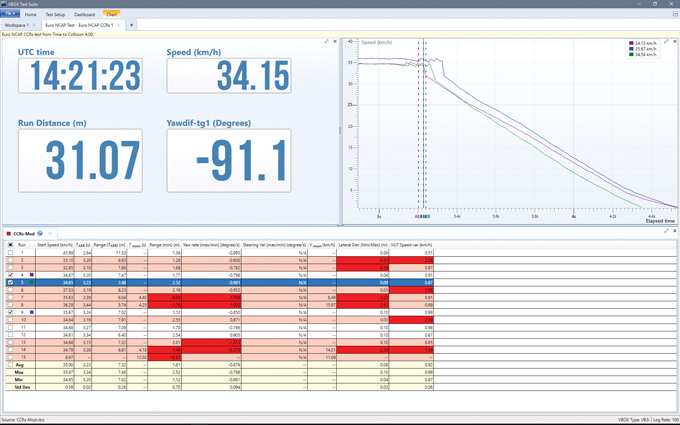
ACC WARNING SIGNALS
If the vehicle carries the ACC operation data on its CAN Bus, this can be simultaneously logged (and displayed in video if a VBOX video logger is also being used) alongside that of the GPS data, giving you an exact comparison between relative vehicle position and onboard strategy data.
If you cannot use the vehicles’ own CAN system, an AVAD3 audio & visual detector from DTC Solutions can be used alongside VBOX to record when an ADAS system has become active. The AVAD3 is capturing acoustic and optical alerts and signals generated by the vehicle’s advanced driver assistance system. It produces a CAN or digital signal when recognising changes of the shapes and colors of defined icons or when audible signals are identified. The output of the AVAD3 can then be used by the VBOX to log the exact moment the vehicle safety message is displayed to the driver.
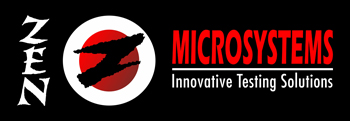
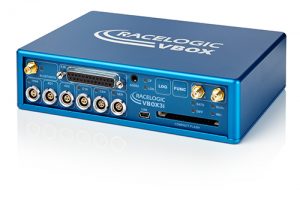
 Conduct realistic testing amongst other road users and roadside architecture
Conduct realistic testing amongst other road users and roadside architecture

